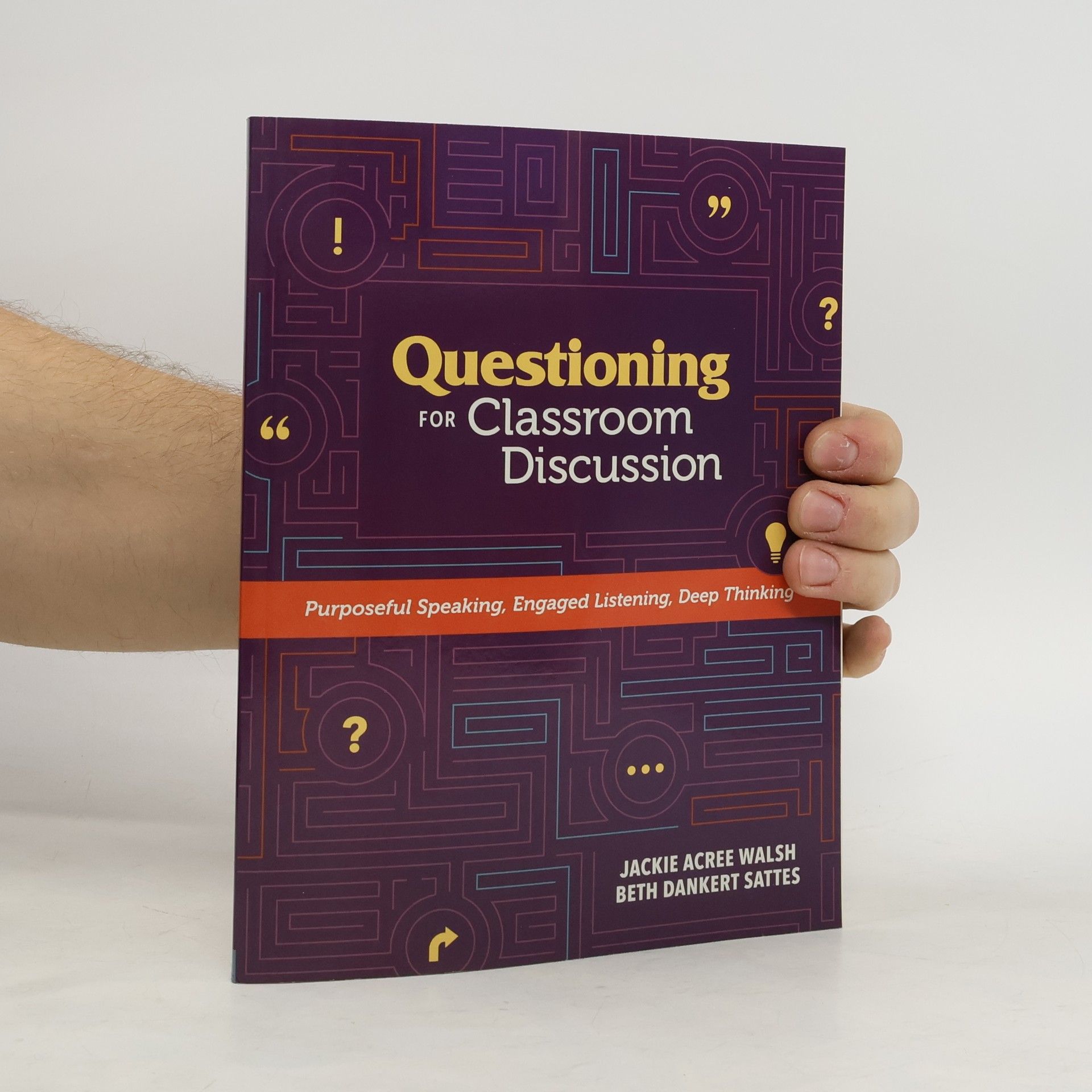Create environments where students ask questions, not just answer them! When students become questioners, learning improves for all. Yet, even though research has repeatedly shown that student questioning increases ownership of learning and narrows opportunity gaps, studies show that students ask less than five percent of the questions in classrooms today. How do you turn this teacher-centric dynamic around? In this book by bestselling author and education expert Jackie Walsh, the author shifts the focus to student-centric learning and how to develop student questioning strategies, including self-questions, academic questions, exploratory questions, and dialogic questions. Other highlights include: - Vignettes of quality questioning in action in various grade-level and content-area classrooms - Examples of how to use questioning to harness the power of formative assessment and create a culture of inquiry - Student questioning models for distance learning
Jackie Acree Walsh Libros




Questioning for Classroom Discussion: Purposeful Speaking, Engaged Listening, Deep Thinking
- 223 páginas
- 8 horas de lectura
The exploration centers on the vital role of questioning in fostering meaningful classroom discussions. Authors Jackie Acree Walsh and Beth Dankert Sattes emphasize that effective questioning transforms students from passive learners into active participants, enhancing their academic and civic skills. They advocate for a collaborative approach where teachers and students engage in productive discussions, analyzing various formats such as teacher-guided, small-group, and student-driven dialogues. The book highlights the potential of these practices to elevate student thinking and learning.
You know everything about your husband, don’t you? He loves you, loves your children, and would never endanger his family. One of these is a lie. It begins like any other day at the hair salon where Sally works, until a client shows her a family photograph that sends her into shock. In that moment, Sally uncovers a devastating secret that Tom has been hiding—one that threatens to unravel their life together. Now faced with a harrowing choice between seeking the truth or preserving her seemingly happy life, Sally learns that even those closest to us can harbor deep secrets. Sometimes, the truth is the hardest thing to confront. Praise for Jackie Walsh highlights the gripping nature of the story, with one reviewer calling it a "real page-turner" and rating it 6 out of 5 stars. Another notes the suspense is "packed to the brim," making it impossible to put down. Readers are captivated by the tension and drama, with one stating it’s a "stunning piece of writing" and highly recommending it. Many express their astonishment at the plot twists, with one reviewer admitting they were left nearly speechless after finishing. The story is described as "utterly captivating," keeping readers guessing until the very end.
Questioning for Formative Feedback: Meaningful Dialogue to Improve Learning
- 203 páginas
- 8 horas de lectura
The book delves into how questioning techniques and formative feedback interact in K-12 education, emphasizing the role of dialogue as a crucial link between them. It examines the importance of effective communication in fostering student learning and engagement, providing insights for educators to enhance their teaching practices through meaningful interactions.